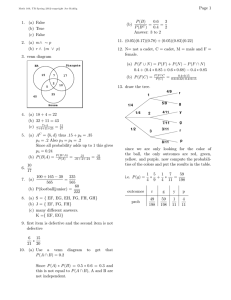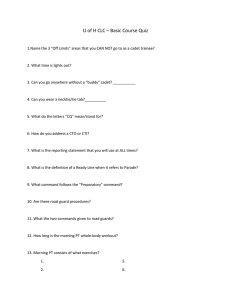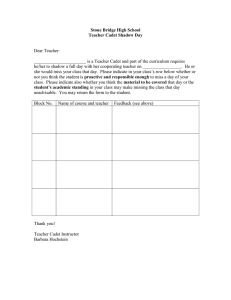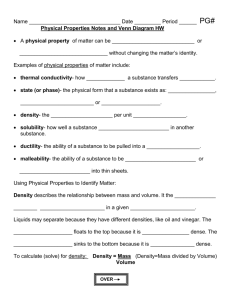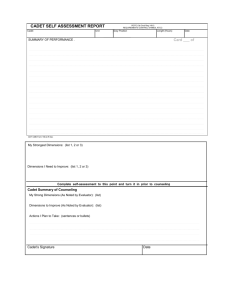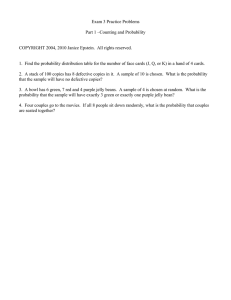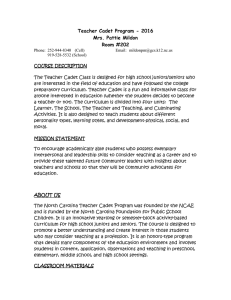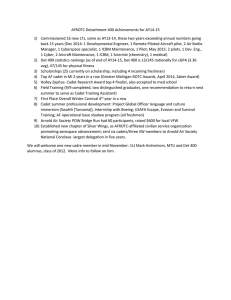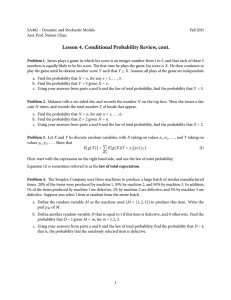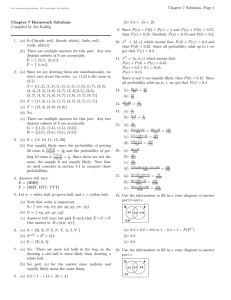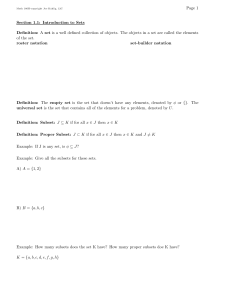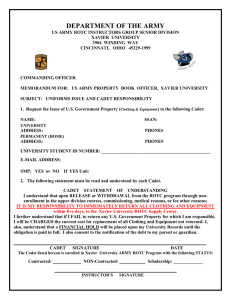Page 1 P (A) 0.45 9
advertisement
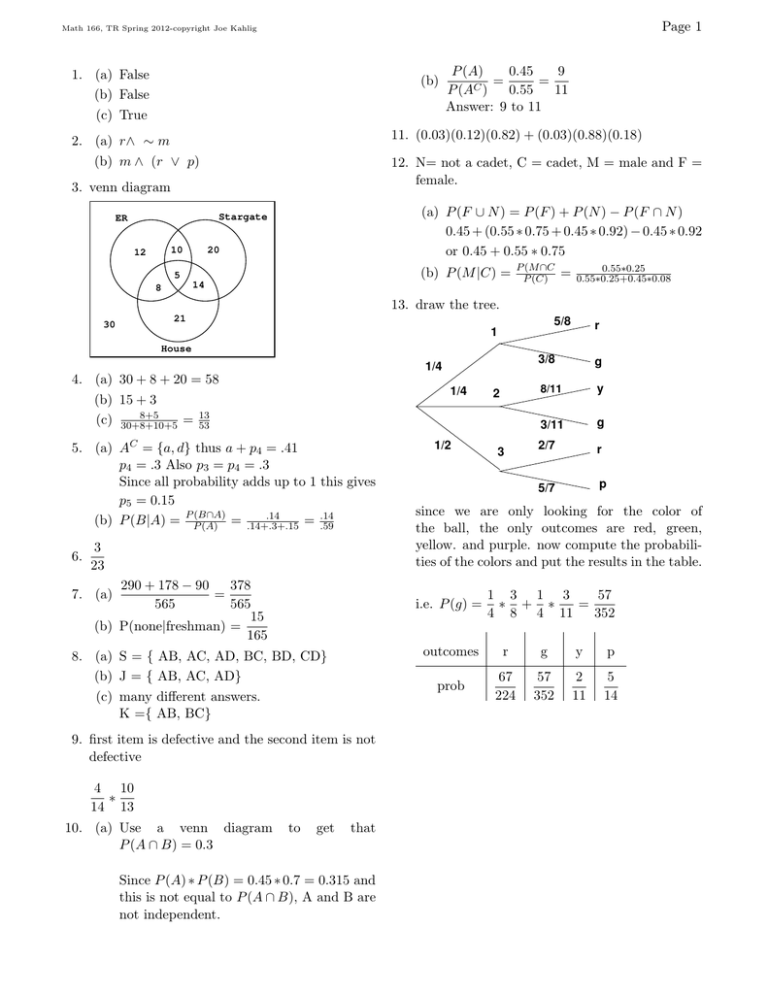
Page 1
Math 166, TR Spring 2012-copyright Joe Kahlig
1. (a) False
(b) False
(c) True
(b)
11. (0.03)(0.12)(0.82) + (0.03)(0.88)(0.18)
2. (a) r∧ ∼ m
(b) m ∧ (r ∨ p)
12. N= not a cadet, C = cadet, M = male and F =
female.
3. venn diagram
(a) P (F ∪ N ) = P (F ) + P (N ) − P (F ∩ N )
0.45 + (0.55 ∗ 0.75 + 0.45 ∗ 0.92) − 0.45 ∗ 0.92
or 0.45 + 0.55 ∗ 0.75
Stargate
ER
10
12
P (A)
0.45
9
=
=
P (AC )
0.55
11
Answer: 9 to 11
20
(b) P (M |C) =
5
14
8
P (M ∩C
P (C)
=
0.55∗0.25
0.55∗0.25+0.45∗0.08
13. draw the tree.
21
30
5/8
1
r
House
1/4
4. (a) 30 + 8 + 20 = 58
(b) 15 + 3
8+5
(c) 30+8+10+5
= 13
53
1/4
5. (a) AC = {a, d} thus a + p4 = .41
p4 = .3 Also p3 = p4 = .3
Since all probability adds up to 1 this gives
p5 = 0.15
.14
.14
(b) P (B|A) = P P(B∩A)
(A) = .14+.3+.15 = .59
6.
3
23
378
290 + 178 − 90
=
565
565
15
(b) P(none|freshman) =
165
7. (a)
9. first item is defective and the second item is not
defective
4 10
∗
14 13
to
get
that
Since P (A) ∗ P (B) = 0.45 ∗ 0.7 = 0.315 and
this is not equal to P (A ∩ B), A and B are
not independent.
3
g
8/11
y
3/11
g
2/7
r
5/7
p
since we are only looking for the color of
the ball, the only outcomes are red, green,
yellow. and purple. now compute the probabilities of the colors and put the results in the table.
i.e. P (g) =
8. (a) S = { AB, AC, AD, BC, BD, CD}
(b) J = { AB, AC, AD}
(c) many different answers.
K ={ AB, BC}
10. (a) Use a venn diagram
P (A ∩ B) = 0.3
1/2
2
3/8
1 3 1 3
57
∗ + ∗
=
4 8 4 11
352
outcomes
r
g
y
p
prob
67
224
57
352
2
11
5
14
